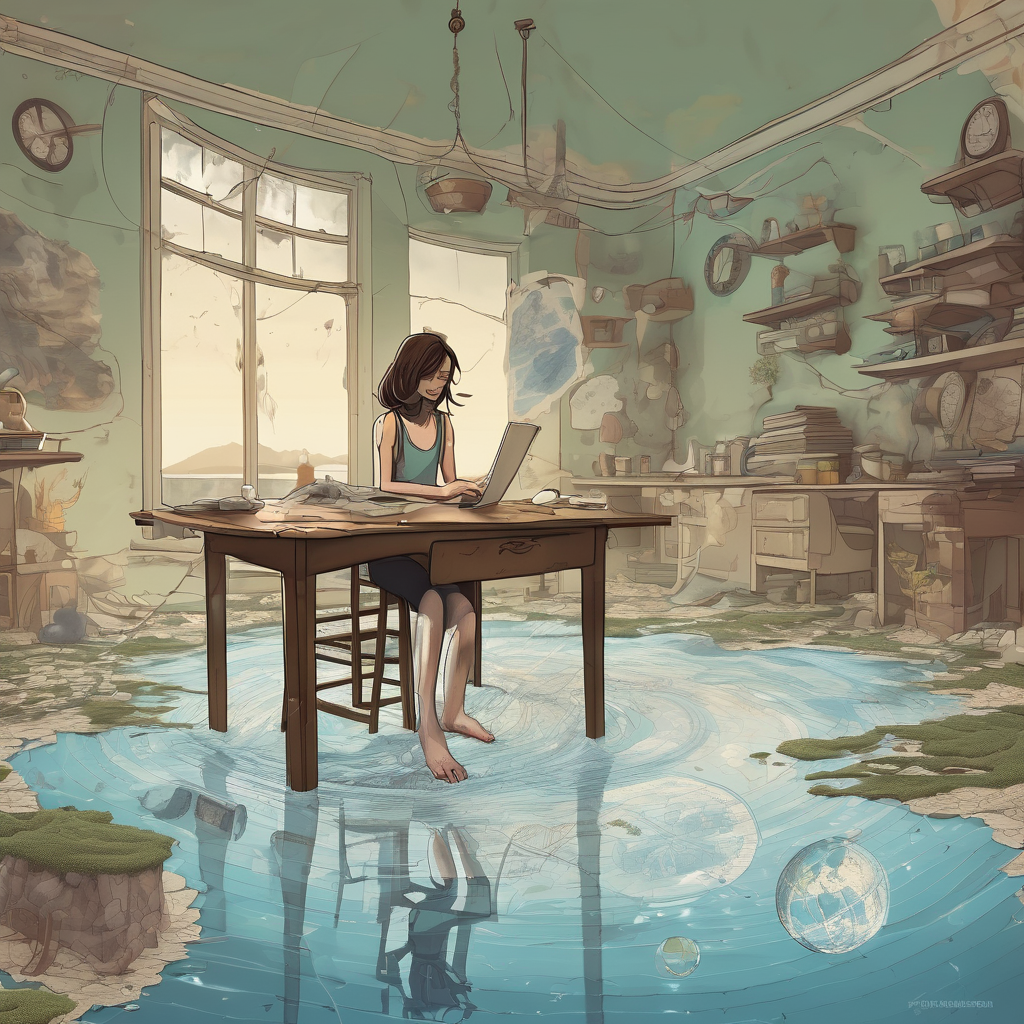Mira inherited three things from her father: a leather satchel of impossible maps, a debt to the Ministry of Impossible Things, and the ability to taste colors when she drew coastlines. The sustainability council had deemed cartography obsolete in the drowning world, but her father had insisted maps were more necessary than ever—especially the ones that showed places that didn’t exist yet.
She stood at the edge of the Wandering Market, where vendors sold tomorrow’s vegetables and yesterday’s regrets. The morning air tasted purple, which meant a storm was breeding somewhere over the Shifting Seas. Her father’s final map lay heavy in her pocket, its edges worn soft from her constant touching. It showed an island that appeared only during solar eclipses, marked with a single word: “Resilience.”
“You’re the mapmaker’s daughter,” said a woman whose hair moved like smoke. She wore a badge identifying her as part of the government’s new transparency initiative, though Mira knew better than to trust anyone who advertised their honesty. “We need to discuss your father’s outstanding obligations.”
Mira had been avoiding this conversation since the funeral boats returned empty—her father’s body claimed by the very waters he’d spent his life charting. The Ministry wanted his maps of the Un-Islands, those patches of land that bubbled up from the ocean floor when the moon pulled just right, offering temporary refuge to climate refugees who’d learned to live between high tides.
“He owed us seven maps,” the woman continued, producing a ledger that smelled of salt and litigation. “The council needs them for the resettlement lottery.”
But Mira knew what the council really wanted: her father’s secret map, the one showing where the permanent lands would rise when the great melt finished. He’d seen it in a dream, he’d told her, after eating the forbidden coral that grew in democracy’s drowned ruins. The coral that let you see through time’s skin.
She ran her fingers along her latest drawing—a map of the night market that existed only on Tuesdays, where her father had taught her to trade stories for starlight. The taste of yellow bloomed on her tongue: the color of doors about to open.
“I’ll finish his work,” Mira said, though she knew she was lying. Her father’s maps had never been about geography. They were about possibility, about the spaces between what was and what could be. The Ministry wanted to use them for control, to decide who got to stand on solid ground when the waters finally stopped rising.
That night, she spread her father’s impossible maps across her floor. Each one showed the same world but different: here, forests grew from courthouse steps; there, the old election halls had become coral nurseries. One map, drawn in ink that changed color with her mood, showed migration routes not of people but of hopes—thin golden lines tracing where dreams traveled when their dreamers drowned.
The woman from the Ministry returned at dawn, bringing enforcers who moved like accountability itself—inevitable and without mercy. But Mira had spent the night learning her father’s last lesson. She pressed her palm to the final map, and the island of Resilience rose from the paper into the room, no bigger than a dinner table but real enough to stand on.
“Some maps,” she said, stepping onto the impossible island as her apartment began to flood with imaginary water, “aren’t meant to show you where to go. They’re meant to show you where to grow.”
The enforcers tried to follow, but only those who could taste colors could read the true maps. As they floundered in the rising illusion, Mira opened her father’s satchel and released all the impossible maps at once. They flew like birds toward the Shifting Seas, each one seeking someone who needed to find a place that didn’t exist yet—but could, if enough people believed in it.
The Ministry would call it destruction of government property. The refugees would call it inclusion. Mira called it what her father had always called it: drawing tomorrow before today ran out of space.
She dove from her impossible island into the real ocean below, where the drowned democracy slept and the forbidden coral grew. There were more dreams to eat, more maps to draw, and somewhere in the warming waters, she could taste the color of new lands preparing to be born—not for those who claimed to own the future, but for anyone brave enough to imagine it differently.

Leave a Reply